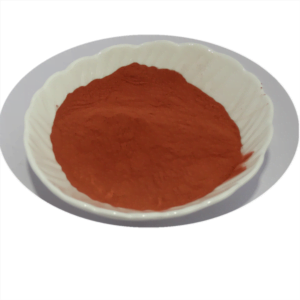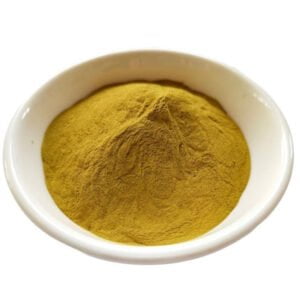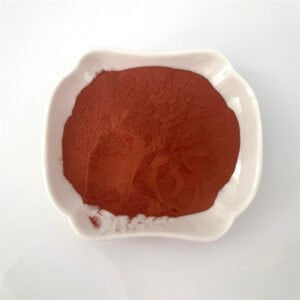Common Models of Cobalt Chromium Alloy 3D Printed Metal Powder
Table of Contents
The world of 3D printing has opened a treasure trove of possibilities for creating complex, high-performance parts. But behind the scenes, the real magic lies in the materials themselves. When it comes to strength, biocompatibility, and intricate design freedom, cobalt chromium alloy 3D printed metal powder reigns supreme. However, not all cobalt chrome powders are created equal. Each variant boasts its own unique set of properties, making them ideal for specific applications. Buckle up, as we delve into the fascinating world of these metallic marvels!
CoCrMo: The Workhorse of Cobalt Chrome 3D Printed Metal Powder
Imagine a metal powder so versatile, it can be used to craft everything from dental implants to aerospace components. That’s the power of CoCrMo (Cobalt-Chromium-Molybdenum). Often referred to as “medical grade” cobalt chrome, this workhorse powder boasts an impressive combination of:
- High Strength: CoCrMo can withstand significant loads, making it perfect for applications that demand durability, like joint replacements or turbine blades.
- Excellent Corrosion Resistance: Say goodbye to rust! CoCrMo’s inherent resistance to corrosion ensures the longevity of 3D printed parts, especially in harsh environments.
- Biocompatibility: This one’s a game-changer for medical applications. CoCrMo’s biocompatible nature makes it an ideal material for implants that seamlessly integrate with the human body.
But there’s a catch. While incredibly strong, CoCrMo can be a bit brittle compared to some other cobalt chrome variants. Additionally, the 3D printing process with CoCrMo can be trickier to master due to its higher melting point.
Think of CoCrMo as the Swiss Army Knife of cobalt chrome powders. It’s a reliable all-rounder, perfect for a vast array of applications, but may require a more experienced hand for printing.
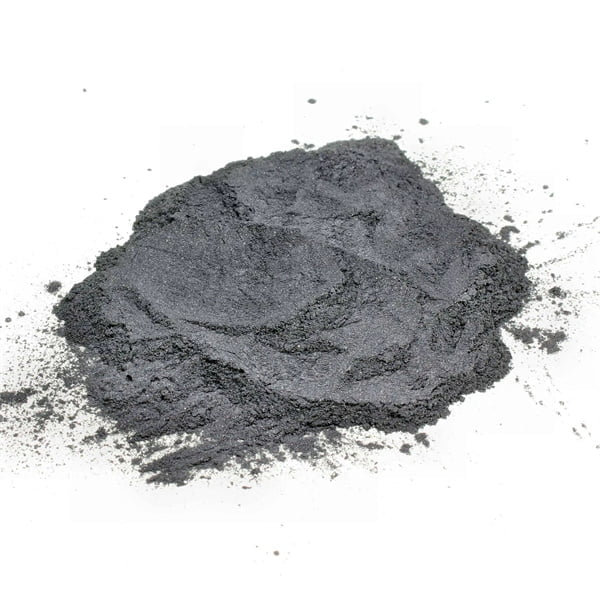
CoCrW: When Wear Resistance Takes Center Stage
Ever wondered how those gears in your car transmission manage to endure constant grinding? The answer might lie in CoCrW (Cobalt-Chromium-Tungsten) powder. This specialized variant incorporates tungsten, a champion of wear resistance, into the mix. Here’s what that translates to:
- Superior Wear Resistance: CoCrW stands tough against friction and abrasion. This makes it ideal for parts like gears, bearings, and cutting tools that experience constant wear and tear.
- High Strength and Hardness: Just like its CoCrMo cousin, CoCrW offers impressive strength and hardness, making it a valuable asset for demanding applications.
There’s a trade-off, though. The inclusion of tungsten can slightly decrease the biocompatibility of CoCrW compared to CoCrMo. Additionally, the higher melting point of tungsten can make the 3D printing process more demanding.
Imagine CoCrW as the ultimate athlete in the cobalt chrome world. It excels in wear resistance and toughness, making it the go-to choice for parts that need to endure constant punishment.
MP1 (Cobalt Chromium Molybdenum Alloy)
The world of 3D printing is constantly evolving, and MP1 is a testament to that. This unique cobalt chrome molybdenum alloy offers a compelling blend of properties, making it a favorite among those in the know:
- Exceptional Strength and Hardness: MP1 boasts superior strength and hardness compared to standard CoCrMo. This makes it ideal for demanding applications like aerospace components and high-performance tools.
- Enhanced Ductility: Unlike some other cobalt chrome variants, MP1 exhibits a surprising degree of ductility, meaning it can deform slightly under pressure without breaking. This makes it a more versatile option for applications where some flexibility is required.
- Improved Biocompatibility: While not quite on par with CoCrMo, MP1 demonstrates improved biocompatibility compared to CoCrW, making it a potential contender for some medical applications.
However, MP1 isn’t without its limitations. It can be slightly more expensive than standard CoCrMo powder, and its availability might be limited compared to more widely used variants.
Think of MP1 as the “special ops” soldier of the cobalt chrome family. It offers a unique combination of strength, ductility, and biocompatibility, making it ideal for high-performance applications where pushing boundaries is the name of the game.
F75: The Nickel-Infused Powerhouse
Sometimes, the best way to improve a formula is to add a dash of something new. That’s the philosophy behind F75, a cobalt chromium nickel alloy. Here’s what the addition of nickel brings to the table:
- Enhanced Strength and Hardness: Nickel adds an extra kick of strength and hardness to the mix, making F75 a contender for applications that demand peak performance.
- Improved Corrosion Resistance: Nickel’s inherent resistance to corrosion bolsters F75’s ability to withstand harsh environments. This makes it a valuable asset for applications like marine components or chemical processing equipment.
There are a few things to consider, however. F75’s biocompatibility might be slightly lower compared to CoCrMo due to the presence of nickel. Additionally, the 3D printing process with F75 can be more intricate due to its unique composition.
Imagine F75 as the “muscle car” of the cobalt chrome world. It boasts impressive strength, corrosion resistance, and a touch of swagger, making it ideal for applications that demand peak performance without compromising on aesthetics.
Choosing the Right Cobalt Chrome Alloy
With so many fantastic options available, selecting the right cobalt chrome alloy for your 3D printing project can feel like a daunting task. But fear not! Here’s a handy guide to help you make the perfect match:
Consider the Application: The primary function of your 3D printed part should be your guiding light. For parts that require maximum wear resistance, CoCrW might be the champion. If biocompatibility is paramount, CoCrMo remains the gold standard.
Strength and Hardness Requirements: How much punishment can your part handle? If it needs to withstand immense loads, MP1 or F75 might be better choices. Standard CoCrMo offers a good balance for many applications.
Biocompatibility Needs: Will your 3D printed part come into contact with human tissue? If so, CoCrMo is the clear winner due to its exceptional biocompatible nature.
Aesthetics and Finishing: While not the most critical factor, some cobalt chrome alloys offer a more polished look than others. F75, for example, can achieve a lustrous finish, while CoCrMo might have a slightly more matte appearance.
Cost and Availability: Last but not least, consider your budget and project timeline. Standard CoCrMo is typically the most affordable and readily available option. MP1 and F75 might come with a slight premium and potentially require more lead time for procurement.
Remember, there’s no “one size fits all” solution. By carefully evaluating your project’s specific needs, you can select the perfect cobalt chrome alloy to bring your 3D printing vision to life.
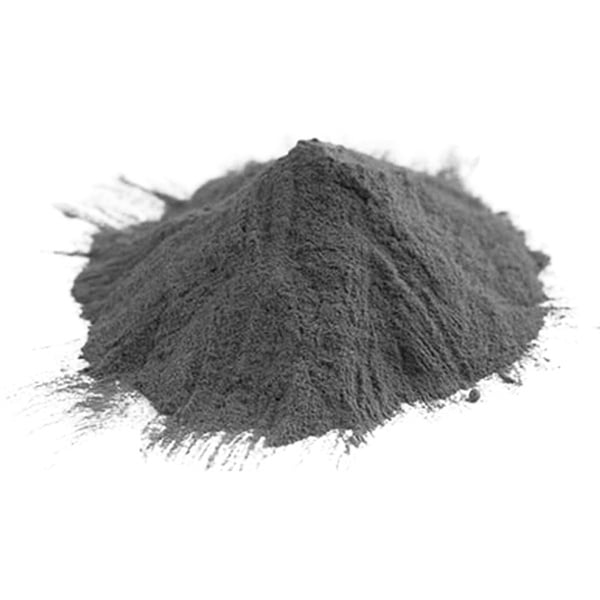
FAQ
Table 1: Frequently Asked Questions about Common Models of Cobalt Chromium Alloy 3D Printed Metal Powder
| Question | Answer |
|---|---|
| What is the strongest cobalt chrome alloy for 3D printing? | MP1 and F75 generally offer superior strength compared to standard CoCrMo. However, the “strongest” option depends on the specific application. |
| What is the most biocompatible cobalt chrome alloy? | CoCrMo is the clear winner in terms of biocompatibility, making it ideal for medical applications. |
| Is cobalt chrome alloy safe for implants? | CoCrMo has a long history of safe and successful use in medical implants. However, it’s important to consult with a healthcare professional for specific applications. |
| What are some advantages of 3D printing with cobalt chrome alloys? | Cobalt chrome alloys offer a unique combination of strength, biocompatibility, and design freedom, making them ideal for complex, high-performance parts. |
| What are some limitations of 3D printing with cobalt chrome alloys? | The 3D printing process with cobalt chrome alloys can be more intricate compared to some other materials. Additionally, some variants might be more expensive or have limited availability. |
By understanding the unique properties of each cobalt chrome alloy and carefully considering your project’s requirements, you can unlock the vast potential of 3D printing for creating high-performance, innovative parts.
Share On
MET3DP Technology Co., LTD is a leading provider of additive manufacturing solutions headquartered in Qingdao, China. Our company specializes in 3D printing equipment and high-performance metal powders for industrial applications.
Inquiry to get best price and customized Solution for your business!
Related Articles
About Met3DP
Recent Update
Our Product
CONTACT US
Any questions? Send us message now! We’ll serve your request with a whole team after receiving your message.

Metal Powders for 3D Printing and Additive Manufacturing
COMPANY
PRODUCT
cONTACT INFO
- Qingdao City, Shandong, China
- [email protected]
- [email protected]
- +86 19116340731











